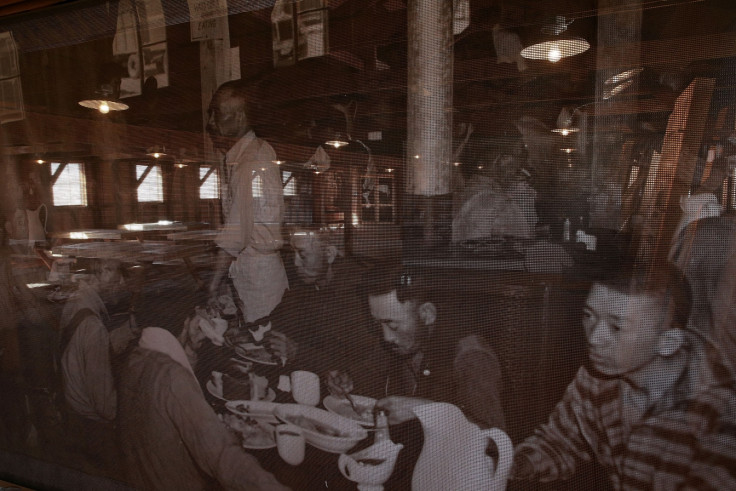Trump supporter cites WWII Japanese internment camps as 'precedent' for Muslim registry
Carl Higbie maintains Trump does not advocate internment camps nor is he afraid of the Muslim community.

A supporter of President-elect Donald Trump cited the Japanese internment camps in the US during World War II as "precedent" for Trump's plan for a Muslim registry. Carl Higbie, spokesman for the pro-Trump Great America PAC, later tried to back away from his comments.
The former Navy SEAL appeared on Fox News The Kelly File on Wednesday (16 November) to voice his support of the plan. When asked about the constitutionality of the plan, Higbie cited the forced relocation and incarceration of Japanese Americans after the attack on Pearl Harbor, Politico reported.
"We've done it based on race, we've done it based on religion, we've done it based on region," he said. "We've done it with Iran back — back a while ago. We did it during World War II with [the] Japanese."
Host Megyn Kelly questioned whether he was suggesting internment camps should be re-implemented, to which he said no. However, he added, "I'm just saying there is precedent for it."
Kelly quickly shot back: "You can't be citing Japanese internment camps as precedent for anything the president-elect is gonna do."
According to CNN, Higbie appeared on Erin Burnett OutFront on Thursday (17 November) and attempted to backtrack from his earlier comments. "I don't actually advocate for any of this," he said. "This is something that is a huge black mark on our society and we would never want to do it again."
.@ErinBurnett has @CarlHigbie clarify comments on WWII internment camps setting precedent: "What are you saying?" https://t.co/ea7nhxm6jj
— OutFrontCNN (@OutFrontCNN) November 18, 2016
Higbie noted, however, that the Supreme Court's 6-3 decision ruling the exclusion order constitutional was never overturned. When asked to clarify, another panelist accused Higbie of backtracking. "That decision you talked about—that Korematsu decision of 1944 — even Justice Antonin Scalia said it is one of the worst decisions ever made by the United States Supreme Court ... We don't want to go back to that precedent," said fellow guest Keith Boykin.
Boykin later challenged Higbie to tell Muslim people that Trump is not advocating for an internment camp-style policy and is not anti-Muslim. "All right, Muslim people of the world, Donald Trump is not in fear of the Muslim community," Higbie said, before adding, "He's in fear of the radical faction of the Muslim community that has done harm to Americans and abroad."
A member of Trump's immigration policy transition team, Kansas Secretary of State Kris Kobach said that Trump's policy advisers are looking to draft a proposal for the president-elect to consider reinstating a registry system that was suspended in 2011.
Following the September 11 attacks – a register and fingerprint system for people from certain Arab and Muslim countries was started in August 2002. The National Security Entry-Exit Registration System (NSEERS) was later broadened to include all foreign visitors to the US.
The system's domestic branch required Muslim men over 16 in the country on work and student visas to register in person at government offices throughout the country. The system was suspended after another programme US-VISIT took over some of its duties collecting data at ports of entry.
© Copyright IBTimes 2025. All rights reserved.





















